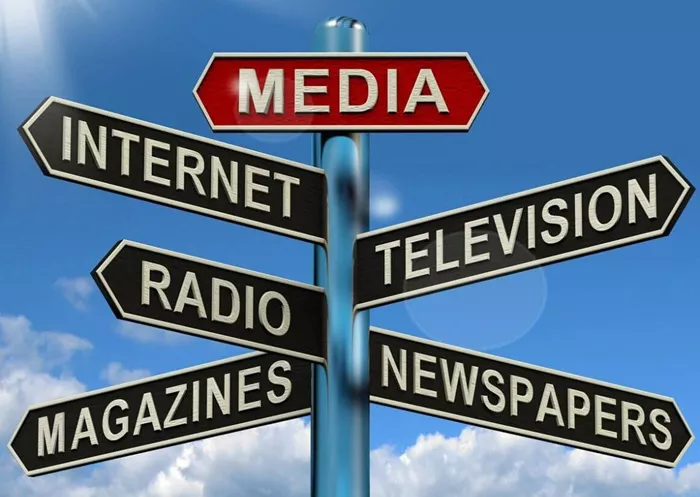The rise of digital platforms has transformed how people consume, share, and interact with information. Traditional media, once dominated by newspapers, television, and radio, has now been supplemented—and in some cases, disrupted—by a dynamic new force: new media. One of the most significant components of this evolution is blogging. But Are Bloggers Part of the New Media? This article delves into the role of bloggers in the digital media landscape, examining their impact, challenges, and future prospects.
Defining New Media
New media refers to digital forms of communication that are interactive, accessible, and often participatory. Unlike traditional media, which operates in a one-to-many format (e.g., television broadcasting to viewers), new media allows for a many-to-many communication model. It includes social media platforms, online news websites, podcasts, vlogs, and, crucially, blogs.
Characteristics of new media include:
Interactivity – Users can engage with content, comment, share, and contribute.
Digital Format – Content is created and distributed online rather than in print or analog formats.
On-Demand Access – Unlike scheduled TV programs or print newspaper editions, new media allows users to access information whenever they want.
User-Generated Content – New media thrives on content created by individuals, not just institutions.
Based on these characteristics, bloggers—who create, distribute, and interact with their audience primarily online—fit many of the defining traits of new media.
The Role of Bloggers in Modern Journalism
Bloggers have increasingly taken on journalistic roles, particularly in niches such as politics, fashion, technology, and lifestyle. Some even rival mainstream media in terms of influence and reach. However, there remains debate over whether blogging should be classified as journalism.
Similarities Between Bloggers and Journalists
Content Creation – Both journalists and bloggers research, write, and publish content for public consumption.
Information Dissemination – Bloggers and traditional journalists alike provide news, insights, and expert opinions.
Influence and Credibility – Well-established bloggers often have a large audience and are trusted sources of information.
Differences Between Bloggers and Journalists
Editorial Oversight – Traditional journalists usually work within established media organizations with strict editorial guidelines, whereas bloggers have complete autonomy over their content.
Fact-Checking Standards – Journalistic institutions have formal fact-checking processes, while bloggers may or may not adhere to rigorous verification practices.
Objectivity vs. Subjectivity – Journalists are generally expected to maintain objectivity, whereas bloggers often write from a personal perspective.
Although not all bloggers adhere to journalistic standards, many do engage in investigative reporting, fact-checking, and critical analysis, thereby blurring the lines between blogging and journalism.
The Power of Blogging in the Digital Age
Bloggers have gained immense power due to the accessibility of the internet and the decline of traditional media barriers. Today, anyone with an internet connection can create content and build an audience.
Influence on Public Opinion
Many bloggers have become key influencers in their respective industries. Whether they focus on political analysis, product reviews, or social issues, their ability to shape opinions rivals that of traditional media outlets. Some bloggers have even broken major news stories before established media houses, proving that they are a significant part of the information ecosystem.
Monetization and Economic Impact
Blogging is no longer just a hobby; it has become a full-fledged industry. Bloggers monetize their content through:
Advertising (Google AdSense, display ads, sponsored content)
Affiliate marketing (promoting products and earning commissions)
Subscriptions and premium content models
Selling products, courses, or digital resources
This financial viability has led to the rise of professional bloggers who dedicate their time and resources to producing high-quality content, further solidifying blogging as part of the new media landscape.
Challenges Facing Bloggers as Part of New Media
Despite their growing influence, bloggers face unique challenges that differentiate them from mainstream media professionals.
Credibility and Trust Issues
Since blogging does not require formal qualifications, misinformation and biased reporting can be prevalent. Many readers remain skeptical of bloggers compared to traditional journalists who operate under strict ethical guidelines.
Legal and Ethical Responsibilities
With great influence comes responsibility. Bloggers must navigate issues such as:
Copyright laws – Using copyrighted images, videos, or text without permission can lead to legal consequences.
Defamation risks – Publishing false or damaging information can result in lawsuits.
Transparency requirements – Disclosing sponsored content and paid promotions is necessary to maintain ethical standards.
While traditional media organizations have legal teams to handle such matters, independent bloggers must often navigate these challenges on their own.
Blogging in the New Media Ecosystem
The role of bloggers will continue to evolve as digital platforms advance. Some key trends shaping the future of blogging include:
Integration with Social Media and Video Content
With platforms like Instagram, TikTok, and YouTube dominating online engagement, many bloggers are expanding into multimedia formats. The rise of vlogging (video blogging) has further blurred the lines between blogging, journalism, and entertainment.
Collaboration with Traditional Media
Rather than competing, some traditional media outlets are integrating bloggers into their platforms. Guest blogging, collaborative reporting, and influencer partnerships are becoming more common, indicating that blogging and mainstream journalism can coexist.
AI and Automation in Blogging
Artificial intelligence (AI) is playing a growing role in content creation. From AI-powered writing assistants to automated SEO optimization, technology is reshaping how bloggers produce and distribute content. However, the human element of blogging—personal insights, opinions, and experiences—remains irreplaceable.
Conclusion
Based on the characteristics of new media, bloggers undoubtedly qualify as part of this digital revolution. Their ability to create, distribute, and engage with audiences in real time aligns with the fundamental principles of new media. However, the distinction between bloggers and traditional journalists remains, particularly regarding credibility, objectivity, and editorial oversight.
As media consumption continues shifting online, bloggers will play an increasingly important role in shaping public discourse, challenging mainstream narratives, and providing diverse perspectives. Whether seen as independent commentators, influencers, or digital journalists, bloggers are a vital force in the new media landscape, contributing to the ever-evolving nature of information and communication.
Related Topics
- What Are News Blogs?
- How To Write A Blog Format Example?
- How Much Does Blogger Pay for 10,000 Views?

